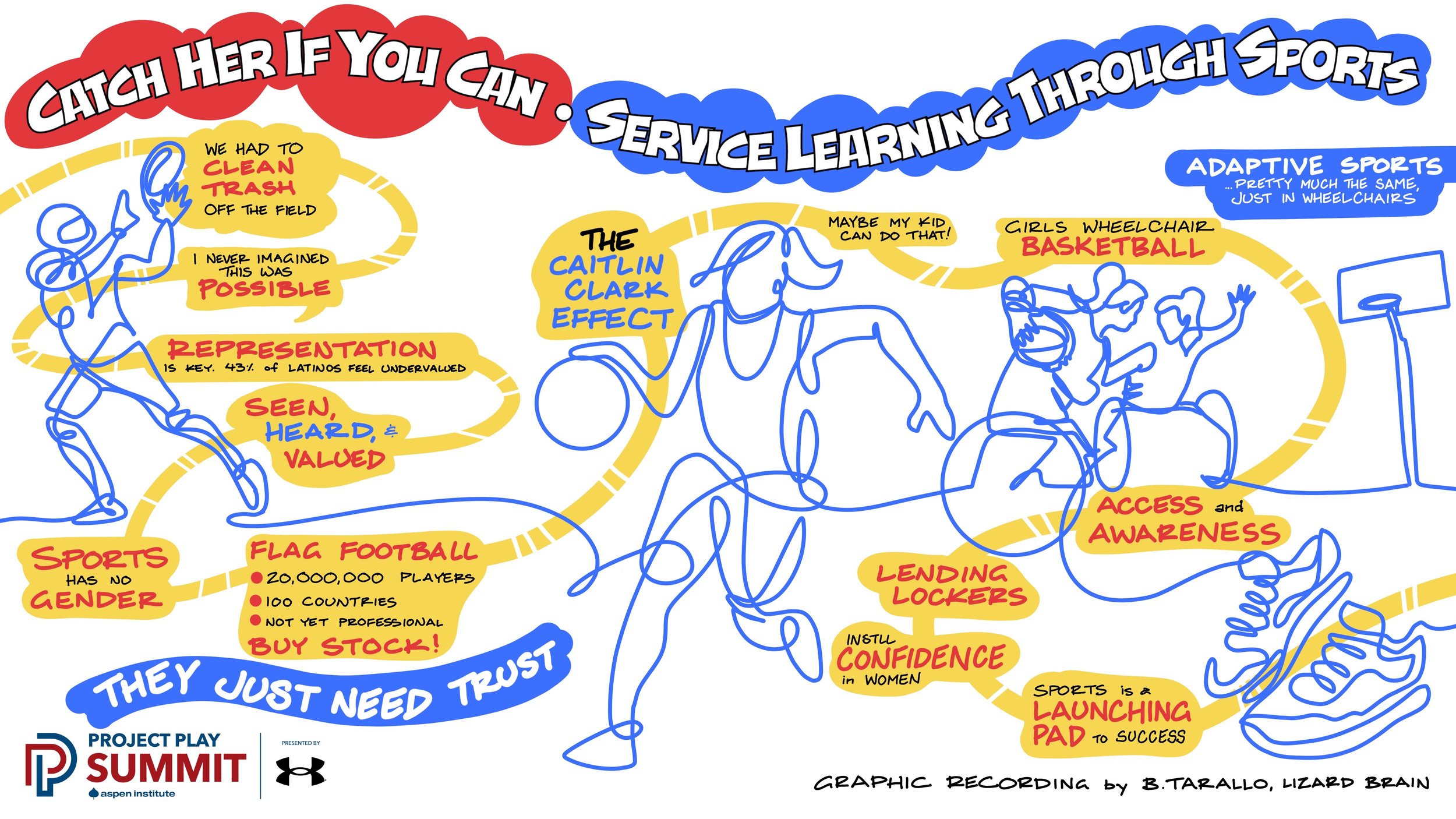Mexican women’s national flag football team captain Diana Flores (left) speaks to USA Today reporter Christine Brennan at Project Play Summit 2024, May 15 in Baltimore.
Photo: Howard Korn for the Aspen Institute
- Baltimore as Beacon with Kevin Plank
- Health Equity in Youth Sports, featuring Mike Locksley, Marci Goolsby & Mayrena Hernandez
- The Key to 63, featuring Christina Hixson, Kim Hegardt & Kevin Martinez
- Catch Her If You Can, featuring Diana Flores
- Service Learning Through Sports, featuring Josie Portell and Rishan Patel
- Building a Youth Sports Policy Agenda
- State of Play Session, featuring Maryland Gov. Wes Moore
Like the trajectory of women’s sports in the U.S. today, Diana Flores seems to be faster and more elusive than anybody who can keep up with her.
The captain and quarterback of Mexico’s national flag football team joined USA Today’s Christine Brennan at the Project Play Summit for insights into ways to engage girls from Hispanic families. Hispanic girls are often the most elusive, and underserved, populations of youth in sports.
“For a Mexican girl … who fell in love with a very American sport that seemed to be a sport for boys, there were not a lot of opportunities,” Flores said about growing up in Mexico City. “(Girls) were not allowed to step on the field because our sport was seen as a side sport that didn’t have the importance.”
As an 8-year-old, Flores built the foundation for her career under poor circumstances, often cleaning dirt fields and playing with girls twice her age just to practice. To ensure no young girl goes through something similar, Flores noted the importance of children seeing athletes who look like them.
“Representation changes lives, and I know that first-hand because it’s changed my life,” Flores said. “It’s important to not only speak to the next generation … but to also help them to see role models.”
“If you see it, you can be it,” she added.
With 1 in every 3 people living in the U.S. projected to be Latino/a by 2050, Flores said representation will carry a huge influence in ensuring that all who play feel seen, heard and valued.
This includes addressing one of the biggest discrepancies in flag football and women’s sports in general: equal pay among genders. Accompanying the U.S. hosting women’s flag football in the 2028 Los Angeles Olympics, Flores foresees her passion finally becoming a paid endeavor.
“This sport has no limit, no roof, to keep going,” Flores said. “In the next couple of years, this will be a way of living for (women).”
This progress, Flores said, does not come without participation in events such as the Project Play Summit.
“(With) gender barriers and representation barriers, it’s amazing to see how (barriers) are breaking thanks to a lot of efforts,” Flores said. “I feel very happy and grateful for all of you being (at the Project Play Summit) because it means that you want to do something to make that change.”
Student journalists from the University of Maryland’s Shirley Povich Center for Sports Journalism covered the Project Play Summit on behalf of the Aspen Institute. More of their stories can be found here. For Project Play’s recap of the Summit, click here. For the full Summit agenda, including replays of every session, click here. The full discussion with Flores is available here.


